
The search for keywords should be the basis of the SEO of Ghost blog , if we are not clear why the users come to our website, it will be very difficult (if not impossible) for us to increase and optimize traffic for keywords that we do not know.
The first thing you have to understand is what types of keywords there are, they can be differentiated by two factors:
1. According to the user's intention
These searches are defined by the objective that the user has when performing them, which is divided into three:
- Informative: They seek information. Example: The weather in Madrid, how to make a lasagna, etc.
- Transactional: The purpose of the search is to complete a transaction, which can be buying something or downloading an e-book
- Navigational: The search is aimed at finding a specific website. Example: Facebook, Amazon, etc.
2. Based on search volume
The volume of searches differentiates the keywords according to the number of searches around them, it is divided into three groups:
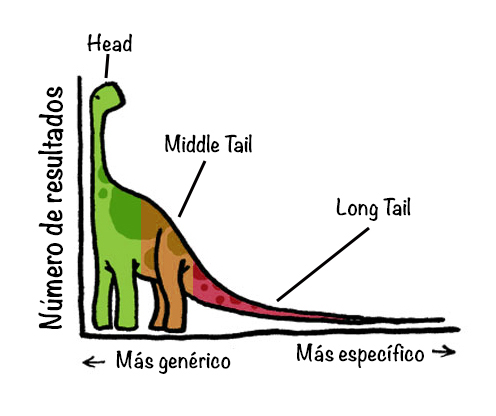
- Head: These are very broad searches with a lot of search volume and a lot of competition. Ex: Cats, Houses, etc.
- Middle Tail: Searches in which more is specified but are still very general. Ex: funny cats, cheap houses, etc.
- Long Tail: This is where the opportunities are, since they make up 70% of the total, they are very specific searches, with little competition and most of them are transactional. Example: Videos of funny Siamese cats, Buy a cheap house in Madrid, etc.
What is the best for my website then? At first glance, it might seem that it is best to focus on the keywords that attract the most traffic, since these will obviously attract more users to my website, but of course, if you are taking the first steps with your website, it will be extremely difficult to position yourself first. results when there is already established competition.
The long tail can make the difference between your page getting started or not. Imagine that you manage to position the KW that you have determined as important, but you leave aside the long tail, which is more than 70% of the visits that enter your website : you are losing most of the traffic that you could generate.
What's more, the traffic that comes to you through generic words has a worse conversion than the long tail ones .
Let's say you have a t-shirt e-commerce, and you have managed to position the keyword "soccer shirts" in first position. It will attract a lot of traffic, but we cannot guarantee that the user will make a purchase: He may be looking for generic information or a website where he can see the club kit.
While the search “buy Messi shirt” may bring you few visitors, but you can be sure that it will be a person with purchase intent, and that the conversion rate will be much higher.
Approach to the list of keywords
The first thing you have to do when generating a list of keywords that is consistent with your website is to know what you offer, who you offer it to, where you offer it and what differentiates you from the competition.
1. In one sentence, what is the core of your business?
Children's books.
2. What do you sell?
I sell children's books online.
3. What services do you offer?
Educational children's books, coloring books and children's models.
4. What is your customer profile?
Fathers and mothers between 25 and 40 years old with young children.
5. Does your business have a physical location?
Yes, I have a store in Madrid.

Group keywords into categories with ghost's tags
Before continuing with the search for keywords you have to create a spreadsheet to add the keywords from now on.
Now that you are clear about where and to whom your business is directed, you have to group the theme of your website into categories, something that will later help you expand the list and search for related terms.
Continuing with the example of books, we could group them into four main categories:
- Buy children's books online
- Educational book online store
- Ecological children's books
- Educational books in Madrid
- Buy coloring books
This list in itself does not serve as a list of keywords, they are too generic and therefore with a lot of competition, the only thing you have done is group the themes of your website, something that will make the following steps much easier.
Expand the list of keyword research tools for ghost cms
In the following steps is where you will find the keywords that are going to generate business and where you have all the possibilities to attract users and in turn position yourself satisfactorily, this is where you will discover the "long-tail" of your website. For this we will use the following tools:
This process goes from less to more in terms of specifying keywords, first we will expand the keywords little by little and then decide which ones have value and which ones do not.

1. Google
With the number of times you have used Google and never used them to perform a keyword search. Google suggests keywords that complete what we write in the search, based on the popularity of these terms. These suggested terms can be found in two places:
- In the bar itself where we do the search
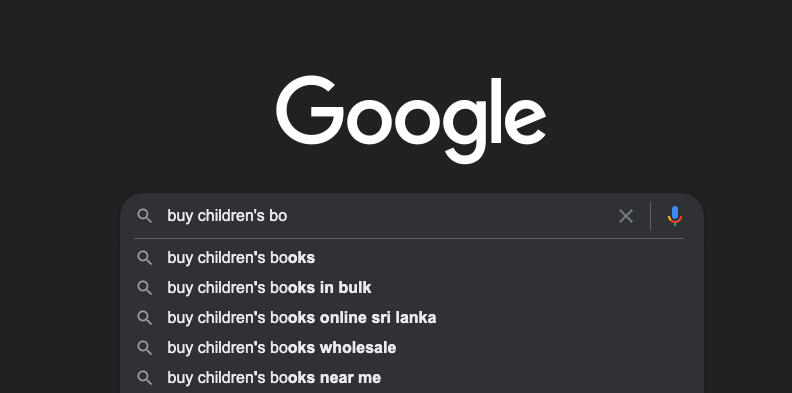
- in the footer
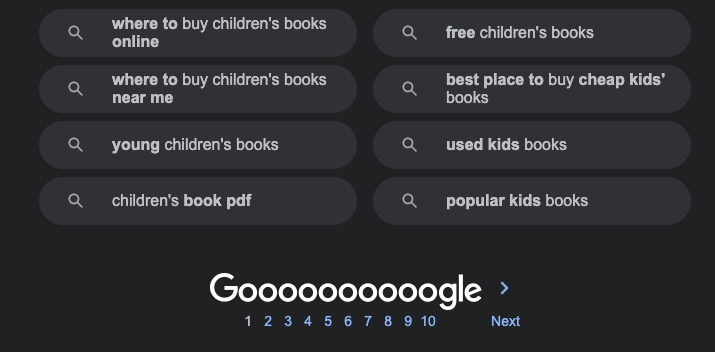
Then you already have new ideas for keywords that you will have to add to the excel that you created before.
2. Ubersuggest
This is an extremely useful tool, very easy to use and it will also save you an enormous amount of time. It takes the data directly from Google Autosuggest, offering us a very complete list with all the possible combinations of keywords that you could find on Google in a few hours ;)
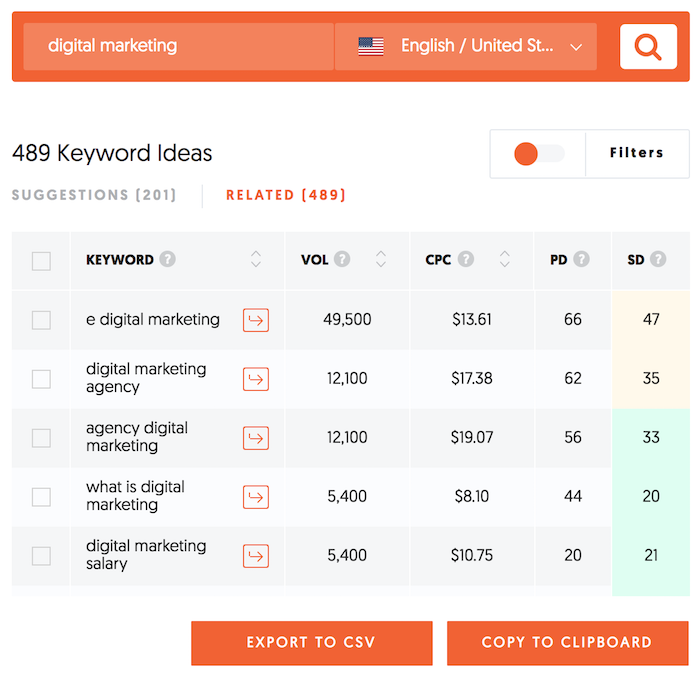
It is very easy to use: you enter the keyword, choose the language, type of search (I recommend leaving the default, web), enter the CAPTCHA code and press suggest.
You have to enter the list of keywords that you have obtained with Google Autosuggest and include the results in your excel file , cleaning all the keywords that do not refer to your business, that is, if you do not sell children's books wholesale, delete it.
You can also use this tool to get an idea of new opportunities to attract traffic, such as children's books in PDF, if it is on this list it is often searched for.
3. Merge Words
Now that you have a considerable list of keywords, what you are going to achieve with this tool is to squeeze them a little more, finding keywords that you may have previously overlooked.
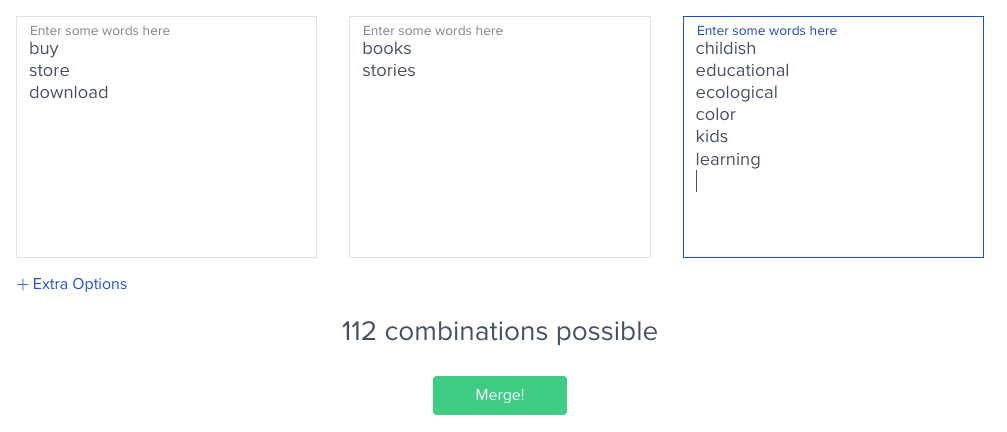
Like the previous tool, it is very easy to use, you enter all your keywords in the three fields and click on “Merge”; You will see a list of keywords with all the possible combinations, as with the previous tool you will have to do a cleaning job since there will be many combinations that do not make any sense.
Add the result of using this tool to the excel we created at the beginning.
4. Google Adwords Keyword Planner
Your excel should now have a fairly complete list of keywords to use in the content of your website, now comes the most important part of the process, which of those keywords are really relevant when it comes to attracting traffic to your website.
To do this, you first have to configure the tool, it's very simple: you have to select the option "show only ideas directly related to my search terms" and search only for terms related to your search:
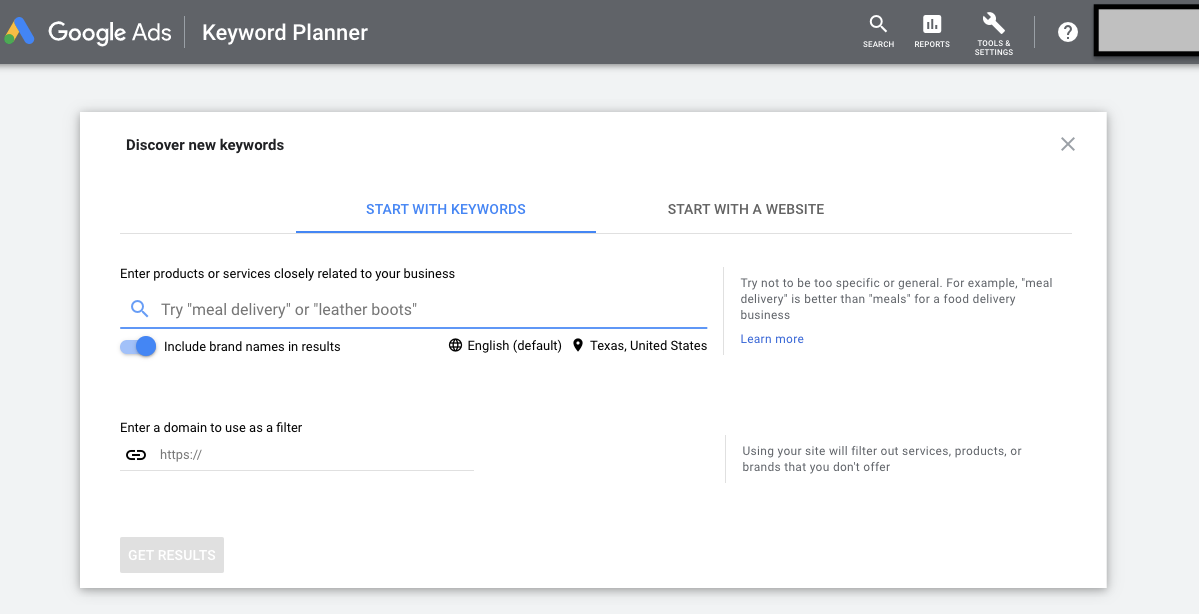
Now you only have to follow two steps to get the information you are looking for:
- Copy your list of keywords from the Excel file, paste it into the Adwords tool and search
- Once the results have come out, sort them by number of local searches (you just have to press the button that says “monthly local searches”) and download the entire list of keywords in a CSV
Once you have the CSV you will have to separate the text into columns, to do this select the entire column, click on data in the top menu > text in columns > choose the option delimited > commas ; You will already have the information perfectly organized.
Now delete all the columns except the search volume column and sort the keywords by search volume.
5. Keyword difficulty tool
This tool will allow you to know the level of competition that each word has, expressed as a percentage by how difficult it is to position them in Google:

It works like the rest of the tools, you have to copy the keywords, paste them into the tool, choose the language and click on “check difficulty”.
After waiting a few minutes you will be able to download all the data in CSV and add the additional information to the excel in which we already have the search volume.
Tip : Before pasting the Keyword Difficulty Tool information into your Excel, sort the data from both files alphabetically to avoid misinformation.
6. Google Trends
This tool is very useful if, for example, you have a fashion blog where trends change according to the time of year or an online store dedicated to sports, since you can easily see the trend of searches throughout the year.
For example, you can compare if more “coloring books” or “educational book” are searched for, being able to optimize the contents for the searches that are actually being done on Google.
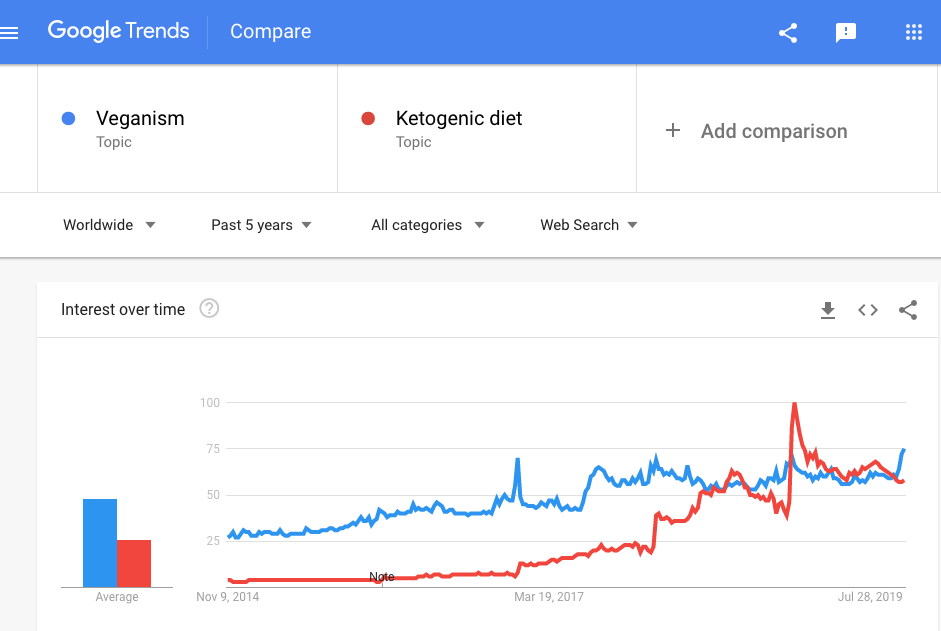
Add synonyms and related terms
It is very important to add related terms and synonyms to your website's keyword strategy since Google increasingly identifies the relationship between words on a website (more so since Humingbird was launched ) and thus you will avoid a possible keyword stuffing problem. in your texts.
Ideally, you should add a new tab in your excel where you link the most important keywords of your strategy (they should be the ones with the most searches and the least competition) with the synonyms.

Useful tools
These tools will also be very useful in the development of your keyword strategy and as in your day to day:
- Google Correlate : This tool makes a comparison between the relationship of some terms and others, it is very useful to get synonyms and related terms.
- Word Counter : This Google Chrome plugin is very simple, it counts the number of words and characters of a selected text.
- Wordpot : In addition to giving you new content ideas, it also provides you with synonyms and related terms.
- Search Combination Tool : It is very similar to Merge Words, only this tool also suggests new terms that you could add to your list.
- Youtube Keyword Tool : The Youtube keyword search tool, essential for a video SEO strategy.
Expand knowledge
Beginner level
Intermediate level
- Define the structure of your website with your keyword search
- Think about themes not keywords
- How to do a keyword search
- Search for keywords for ecommerce
Advanced level


